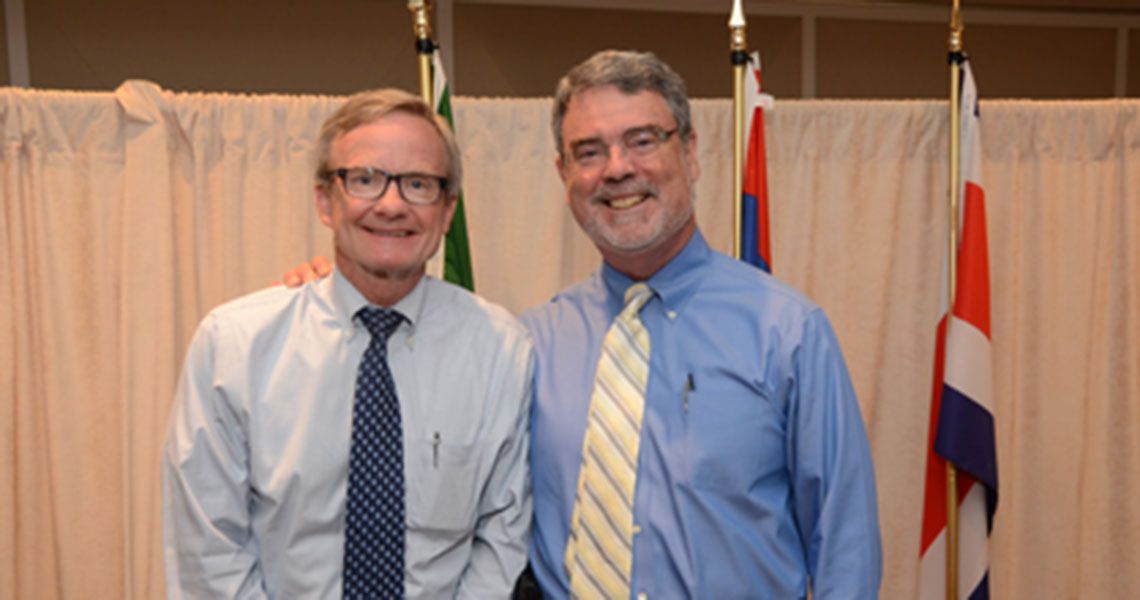WASHINGTON (July 23, 2012) – The first 30 volunteers for the Global Health Service Partnership (GHSP) program gathered in Washington for an orientation recently and two George Washington University (GW) professors played key roles in the historic training sessions. GHSP, a collaboration between the Peace Corps, the President’s Emergency Plan for AIDS Relief (PEPFAR) and the non-profit Seed Global Health, was launched to help boost training for health professionals in developing countries. The orientation was designed to prepare the volunteers for their year-long assignments as members of faculties in medical and nursing schools in Tanzania, Malawi and Uganda.
Fitzhugh Mullan, M.D., Murdock Head Professor of Medicine and Health Policy in the Milken Institute for Public Health (formerly the GW School of Public Health and Health Services) and the founding board chair and senior advisor for Seed Global Health, taught sessions on the background of the program and on the status of medical and nursing education in Africa. James Scott, M.D., the former Dean of the GW School of Medicine and Health Sciences, a Peace Corps alumni and a senior advisor for medical education at Seed Global Health, coordinated the two-week orientation and taught sessions on medical education trends and innovations and on teaching techniques for the volunteers. The 15 physicians and 15 nurses received training on infectious diseases, safety and security, cultural topics and technical information about the health conditions that they will likely encounter during their service overseas.
“It is an honor for the GW School of Medicine and Health Sciences, along with the GW School of Public Health and Health Services, to participate in this historic event,” said Dr. Scott. “I hope the training the volunteers received from us to teach healthcare professionals in Tanzania, Malawi and Uganda will have far-reaching effects, for years to come.”
The launch represented a vision come true for Dr. Mullan, who chaired a 2004 committee of the Institute of Medicine that called for a “Global Health Service Corps” and published a 2007 article in the Journal of the American Medical Association that proposed a conceptual blend of the Peace Corps and the National Health Service Corps to battle disease in developing countries. But it took the alignment of other forces and the dedication of Vanessa Kerry, M.D., an internist at Massachusetts General Hospital and now the Chief Executive Officer of Seed Global Health, before the organization was formally launched. That happened in March 2012 when Drs. Mullan and Kerry joined the director of the Peace Corps and the U.S. Global AIDS Coordinator in announcing the creation of the Global Health Service Partnership. Not long after the Announcements the new program put out a call for volunteers—doctors and nurses interested in serving as educators at medical schools and nursing schools in the developing world. The first 30 volunteers, who range in age from 26 to 70, were sworn in at a special ceremony held at the White House on July 18, 2013 and left immediately for their assignments in Africa. “Developing countries face not only a huge burden of disease but a drastic shortage of medical and nursing faculty,” said Dr. Mullan, who is also a professor of Pediatrics in the GW School of Medicine and Health Sciences. “The launch of this first class represents an exciting step toward bolstering the training of the next generation of doctors, nurses and others on the front lines.”



